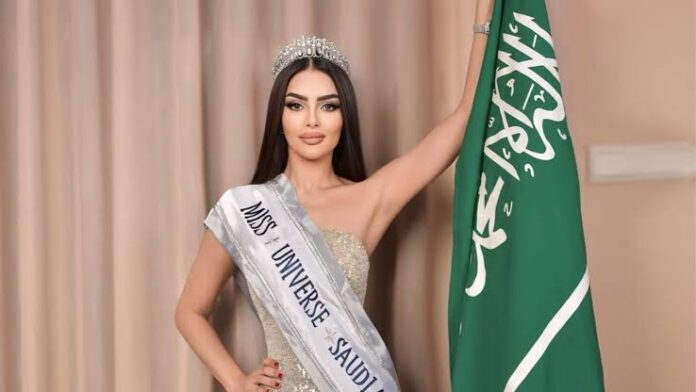
The announcement that Saudi Arabia will participate in the Miss Universe Pageant for the first time has triggered both curiosity and debate. Rumy al-Qahtani, a 27-year-old Saudi model and social media influencer, was rumoured to represent the Kingdom in the global beauty pageant, breaking barriers in a country where women have long faced restrictions under conservative Islamic laws.
As the home of Islam and the revered Holy Cities of Mecca and Medina, Saudi Arabia holds immense cultural and religious significance. The kingdom has seen a cultural shift under the Crown Prince Mohammed bin Salman’s Vision 2030 plan, which includes a number of social and cultural reforms.
The campaign intends to modernise Saudi Arabia and make it less reliant on its oil. The fashion and entertainment industries have been part of the efforts to diversify the economy.
Although, the Miss Universe Organisation has officially denied these claims, stating that a decision on Saudi Arabia is yet to be made.
However, Saudi Arabia’s Miss Universe representative could be viewed as a symbol of progress within the Islamic world. Traditionally, beauty pageants have been met with skepticism in conservative societies due to concerns about modesty, objectification, and adherence to religious values. By participating, Saudi Arabia may signal a shift toward embracing modernity, individual expression, and women empowerment.
Nonetheless, not everyone will see it this way. Some may perceive it as a departure from traditional norms, potentially leading to controversy. The delicate balance between cultural preservation and global participation will be closely scrutinised.
The inclusion of a Saudi contestant in the Miss Universe Pageant could alter global perceptions of the country. Beyond oil wealth and geopolitical influence, Saudi Arabia would be recognised for its cultural diversity, fashion, and beauty. It could challenge stereotypes and highlight the multifaceted nature of a nation often reduced to headlines about politics and religion.
The Kingdom’s participation may evoke mixed reactions from other Muslim-majority countries. Some may celebrate it as a step toward openness and inclusivity, while others might express reservations. The perception of Saudi Arabia as a trendsetter or outlier will depend on regional dynamics and individual perspectives.
Internationally, Saudi Arabia’s involvement could foster dialogue and bridge gaps. It provides an opportunity for cultural exchange and mutual understanding. However, it may also invite criticism from those who question the compatibility of beauty pageants with Islamic values.
Nevertheless, Conservative Muslims within the Kingdom and beyond may express varying opinions. While some may appreciate the representation and recognise it as a personal choice, others may consider it incompatible with their interpretation of Islamic principles. The debate will likely center on modesty, morality, and the role of women in society.
On the other hand, Saudi Arabia’s Miss Universe candidate could inspire young women to pursue their ambitions beyond traditional roles. Her journey may challenge gender stereotypes and encourage others to dream big. By participating, she becomes a role model, demonstrating that beauty and intellect need not be mutually exclusive.
As Saudi Arabia allegedly treads this uncharted path, the Miss Universe Pageant becomes a stage for cultural diplomacy, self-expression, and societal transformation. Whether it results in a crown or controversy remains to be seen, but it undoubtedly adds a new dimension to the global conversation about beauty, identity, and progress.





